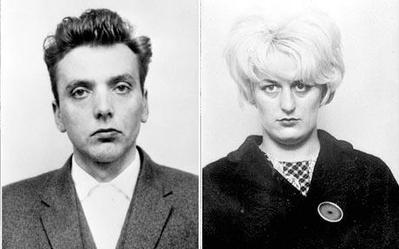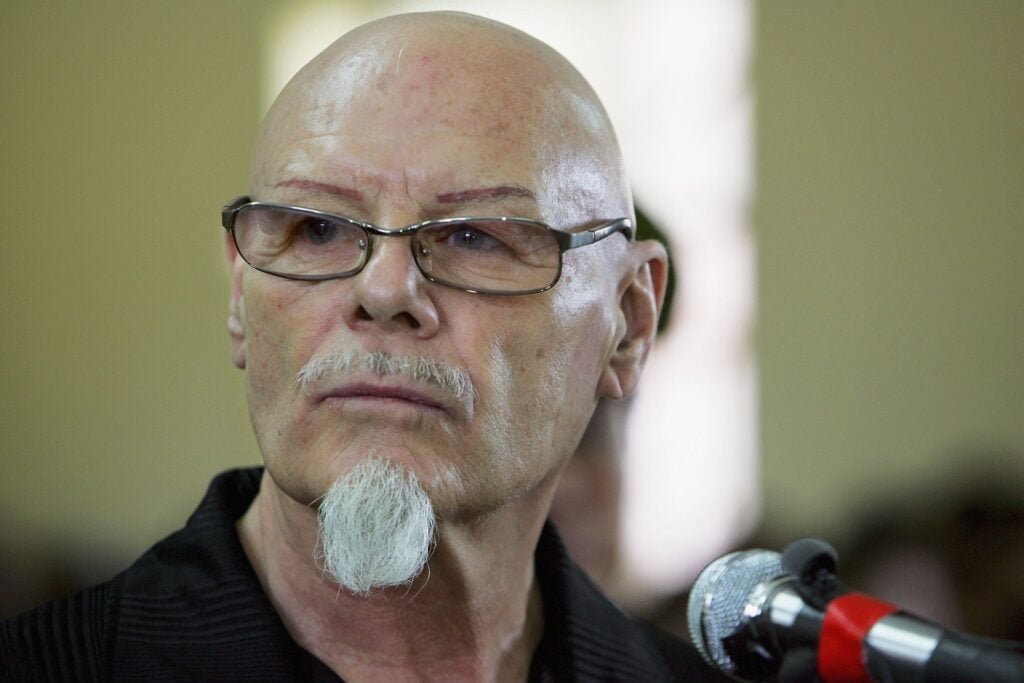Famous Prisoners in the United Kingdom: A Glimpse into Infamous Lives. The United Kingdom has witnessed its fair share of notorious individuals who have left an indelible mark on history, both through their actions and the subsequent incarceration. From political figures to criminals, the British prison system has housed several famous prisoners over the years. This article delves into the lives and legacies of some of the most prominent and infamous inmates in the history of the UK.

Charles Bronson, originally named Michael Peterson, gained notoriety as one of Britain’s most violent prisoners. Known for his confrontational nature and propensity for violence, Bronson has spent the majority of his adult life behind bars. His story has inspired books, a film, and even artwork. Despite his notoriety, Bronson has also become a controversial figure, with some arguing for his rehabilitation and others fearing his potential for future violence.

Famous Prisoners UK The Kray Twins
The Kray twins, Ronnie and Reggie, were prominent figures in the London underworld during the 1950s and 1960s. As leaders of a criminal gang, they engaged in organized crime, extortion, and acts of violence. The twins enjoyed celebrity-like status, rubbing shoulders with high-profile individuals and even gaining media attention. However, their reign of terror eventually came to an end when they were convicted of murder. The brothers were incarcerated for life, with Reggie dying in prison in 2000 and Ronnie in 1995.

Famous prisoners UK - Harold Shipman
Harold Shipman, also known as “Dr. Death,” was a British general practitioner and one of the deadliest serial killers in recorded history. Estimated to have been responsible for the deaths of over 250 of his patients, Shipman’s shocking crimes sent shockwaves through the medical community and society at large. Following his conviction in 2000, he was sentenced to life imprisonment and ultimately took his own life in prison in 2004.

Ian Brady and Myra Hindley
Ian Brady and Myra Hindley, collectively known as the “Moors Murderers,” carried out a series of heinous crimes in the 1960s, which shocked the nation. The couple abducted, tortured, and murdered five children, burying their victims on Saddleworth Moor. Following their arrest and trial, both were sentenced to life imprisonment. Brady’s death in 2017 marked the end of an era, but the case remains etched in the collective memory of the UK as one of the most horrifying criminal acts in its history.

Robert Maudsley
Robert Maudsley, often referred to as the “Hannibal the Cannibal” or the “Hannibal Lecter of Britain,” is a notorious prisoner who has gained infamy for his gruesome crimes. Born in 1953, Maudsley’s criminal activities included multiple acts of murder, with a particular focus on targeting fellow inmates while incarcerated. Notably, he is known for his violent tendencies and his alleged acts of cannibalism. Maudsley’s crimes and the gruesome details surrounding them have shocked and horrified the public. He is currently serving a life sentence in solitary confinement, considered one of Britain’s most dangerous and high-security prisoners. Maudsley’s case has become a subject of fascination and speculation, raising profound questions about the nature of criminal behavior and the limits of human depravity.

Damien Fowkes Famous Prisoner
Damien Fowkes is a convicted prisoner who gained attention for his attempted attack on the British politician and Member of Parliament, Nigel Farage. In 2010, Fowkes threw a carton of lime juice at Farage during a public appearance, with the intent to carry out an assault. Fowkes was apprehended and later sentenced to six weeks in prison for the incident. His actions were widely condemned, and the incident highlighted concerns regarding the safety and security of public figures in the UK. Fowkes’ case serves as a reminder of the potential threats faced by individuals in the public eye and the importance of maintaining security measures to ensure their well-being.
‘I hope I killed him. I’ve been planning it for weeks.’ That’s what Fowkes was heard to say shortly after plunging a shiv into the neck of Ian Huntley in 2011. The seven-inch wound only narrowly missed Huntley’s jugular vein. Holly Wells and Jessica Chapman’s killer was extremely lucky to survive.

Rolf Harris
Rolf Harris, a once-beloved Australian-British entertainer, found himself in the spotlight for all the wrong reasons when he was convicted of multiple counts of indecent assault. The charges against Harris related to the sexual abuse of underage girls, spanning several decades. The renowned television personality and artist, who had enjoyed a long and successful career in the entertainment industry, faced a dramatic fall from grace. In 2014, he was sentenced to five years and nine months in prison. The case against Harris sent shockwaves through both the entertainment world and the public, shedding light on the prevalence of sexual abuse and the importance of holding perpetrators accountable. The scandal surrounding Rolf Harris serves as a reminder that even those who have achieved great fame and success can face serious consequences for their harmful actions.

Gary Glitter
Gary Glitter, whose real name is Paul Gadd, is a former British glam rock singer who became notorious for his criminal actions. Glitter’s fame peaked in the 1970s with hits like “Rock and Roll (Part 2)” and “Do You Wanna Touch Me?” However, his career took a dark turn when he was convicted of possessing child pornography in 1999. This initial conviction was followed by a more severe one in 2006 when he was found guilty of sexually abusing underage girls in Vietnam. Glitter was sentenced to a total of 16 years in prison. His case exposed the issue of child exploitation and highlighted the need for stronger measures to protect vulnerable individuals. The name Gary Glitter has become synonymous with disgrace and serves as a reminder of the lasting impact that such crimes can have on the lives of victims and the reputation of those involved.

Dennis Nilsen
Dennis Nilsen, also known as the “Muswell Hill Murderer” or the “Kindly Killer,” is a notorious prisoner who gained infamy for his horrifying crimes. Nilsen’s crimes came to light in the 1980s when human remains were discovered at his residence in Muswell Hill, London. He was arrested and subsequently confessed to murdering and dismembering at least 12 young men between 1978 and 1983. Nilsen’s modus operandi involved luring vulnerable individuals to his home, where he would then commit heinous acts of violence. After his trial in 1983, he was convicted and sentenced to life imprisonment. Throughout his time behind bars, Nilsen has been the subject of fascination and study due to the chilling details of his crimes and his psychological motivations. His case continues to be a stark reminder of the darkest aspects of human nature and the devastating consequences of such horrific acts.
Julian Assange, the founder of WikiLeaks, achieved international notoriety for his role in leaking classified information from various governments. While not a British citizen, Assange sought asylum in the Ecuadorian Embassy in London to evade extradition to Sweden on sexual assault charges. After seven years, he was arrested in 2019 for breaching his bail conditions. A protracted legal battle followed, and in 2021, a UK court ruled against his extradition to the United States, where he faces charges related to leaking classified documents. Assange’s case has raised complex legal and ethical questions regarding freedom of the press and government transparency.

Who is the UK most famous prisoner?
Who is the UK most famous prisoner? This title has to go to Charles Bronson.
Renowned as Britain’s most infamous prisoner, Charles Bronson has endured almost five decades behind bars, spending a significant portion of that time in solitary confinement. At 70 years old, Bronson’s solicitor, Dean Kingham, asserts that his client has undergone a remarkable transformation and now advocates for a pardon from the Justice Secretary, Dominic Raab.
Having garnered a reputation for his confrontational nature and propensity for violence, Charles Bronson’s journey through the criminal justice system has been extensively documented. With a rap sheet showcasing numerous altercations and acts of aggression, his time in prison has been marked by prolonged periods of isolation from the general inmate population.
However, according to Bronson’s solicitor, Dean Kingham, the notorious prisoner has experienced a profound transformation during his lengthy incarceration. Kingham emphasizes that Bronson is now “reformed” and believes that he has exhibited sufficient rehabilitation to warrant serious consideration for a pardon.
In light of these claims, Dean Kingham has taken a proactive stance, urging Justice Secretary Dominic Raab to review Bronson’s case and potentially grant him clemency. Such a pardon would serve as a recognition of the progress Bronson has purportedly made in his personal development, highlighting the potential for reform even in the most hardened individuals.
The question of whether Charles Bronson deserves a pardon remains a subject of debate. While his past actions have undeniably caused significant harm, the possibility of redemption and transformation raises complex ethical and legal considerations. Granting a pardon to someone with Bronson’s notorious history would undoubtedly generate polarized opinions and ignite discussions about the purpose of punishment and the potential for rehabilitation within the criminal justice system.
As Justice Secretary Dominic Raab deliberates on this delicate matter, it is crucial to strike a balance between recognizing the potential for personal growth and ensuring public safety. The decision to grant a pardon to Charles Bronson will undoubtedly require a thorough examination of his case, taking into account his alleged reform and the impact of his potential release on society.
While Charles Bronson’s name has become synonymous with notoriety, his solicitor’s plea for a pardon serves as a reminder that individuals can change over time. As the justice system evolves, discussions surrounding the nature of punishment, rehabilitation, and forgiveness continue to shape the path forward. The ultimate decision rests in the hands of the Justice Secretary, who must navigate the delicate balance between justice, mercy, and public interest.




